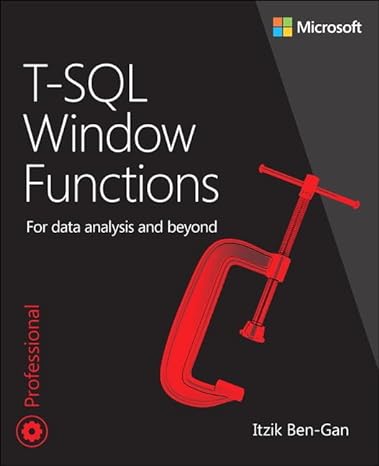Answered step by step
Verified Expert Solution
Question
1 Approved Answer
In this lab, I was asked to create a second function printIntAsBinary (unsigned int number) to work with integers. *I have attached the code for
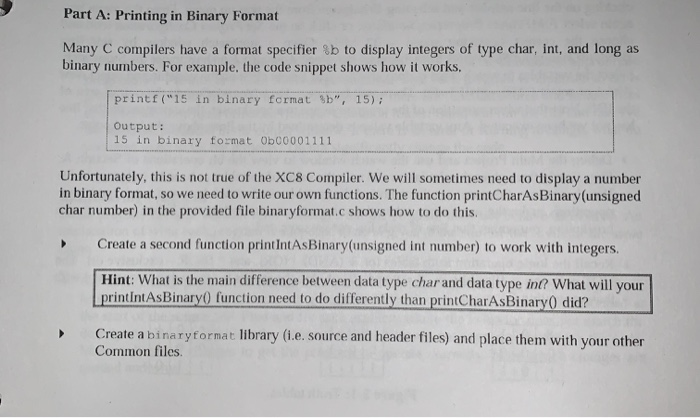
In this lab, I was asked to create a second function printIntAsBinary (unsigned int number) to work with integers.
*I have attached the code for the first function printCharAsBinary ( unsigned char number)
down
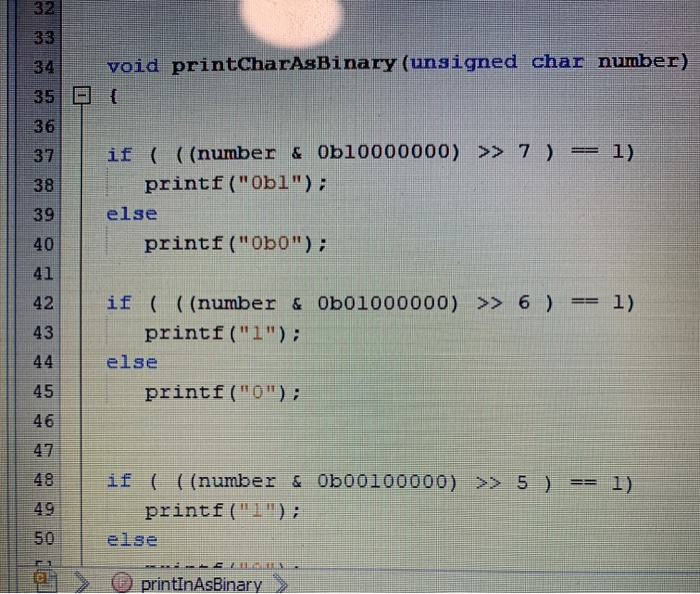
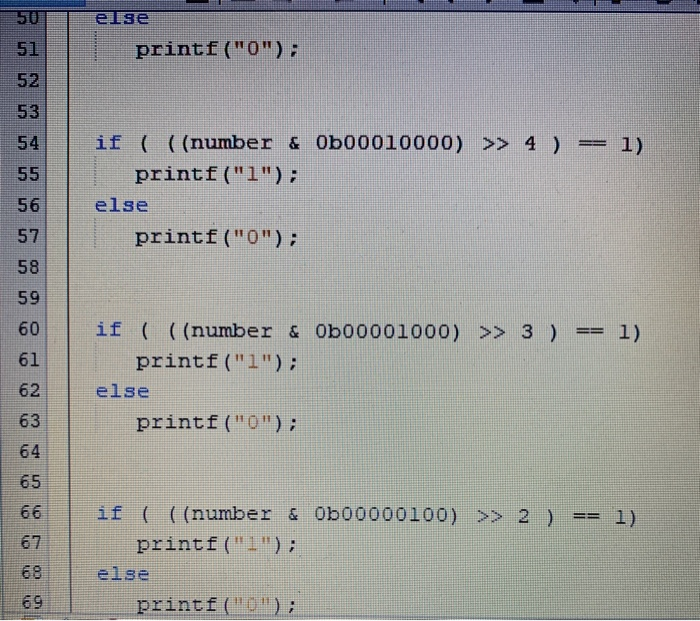
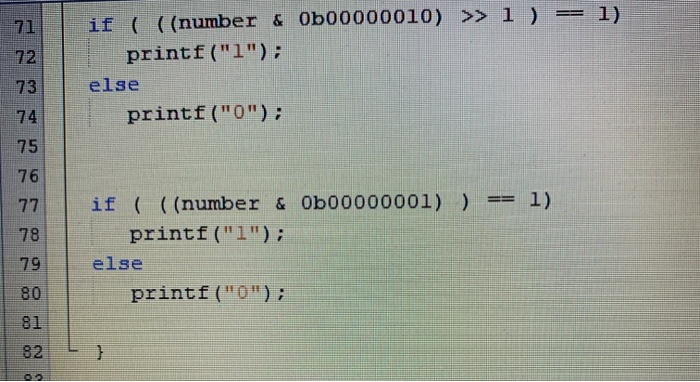
thanks
Step by Step Solution
There are 3 Steps involved in it
Step: 1

Get Instant Access to Expert-Tailored Solutions
See step-by-step solutions with expert insights and AI powered tools for academic success
Step: 2

Step: 3

Ace Your Homework with AI
Get the answers you need in no time with our AI-driven, step-by-step assistance
Get Started


